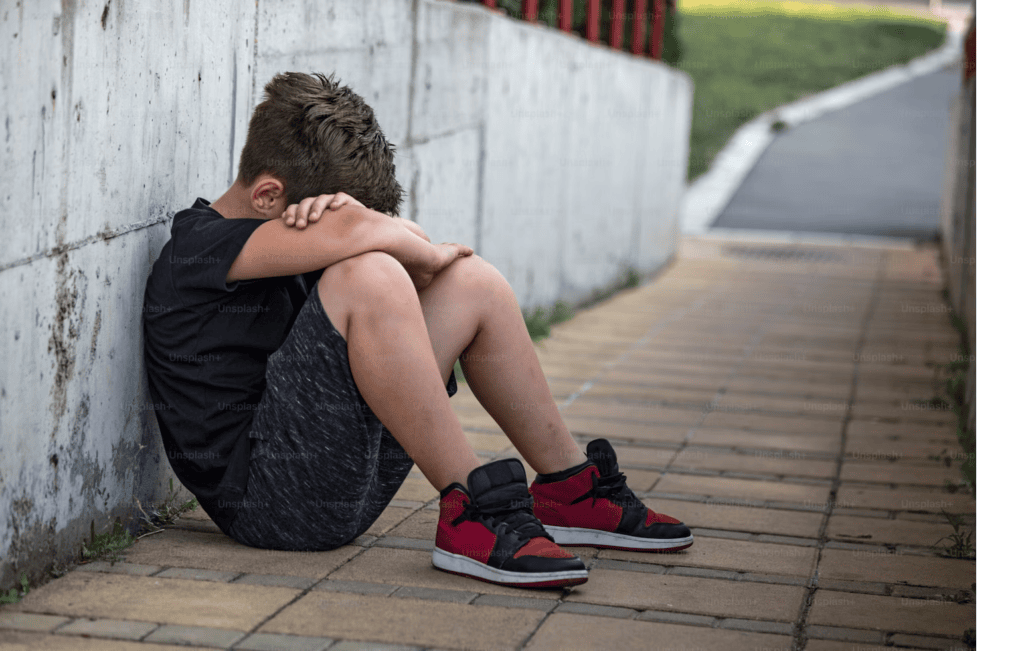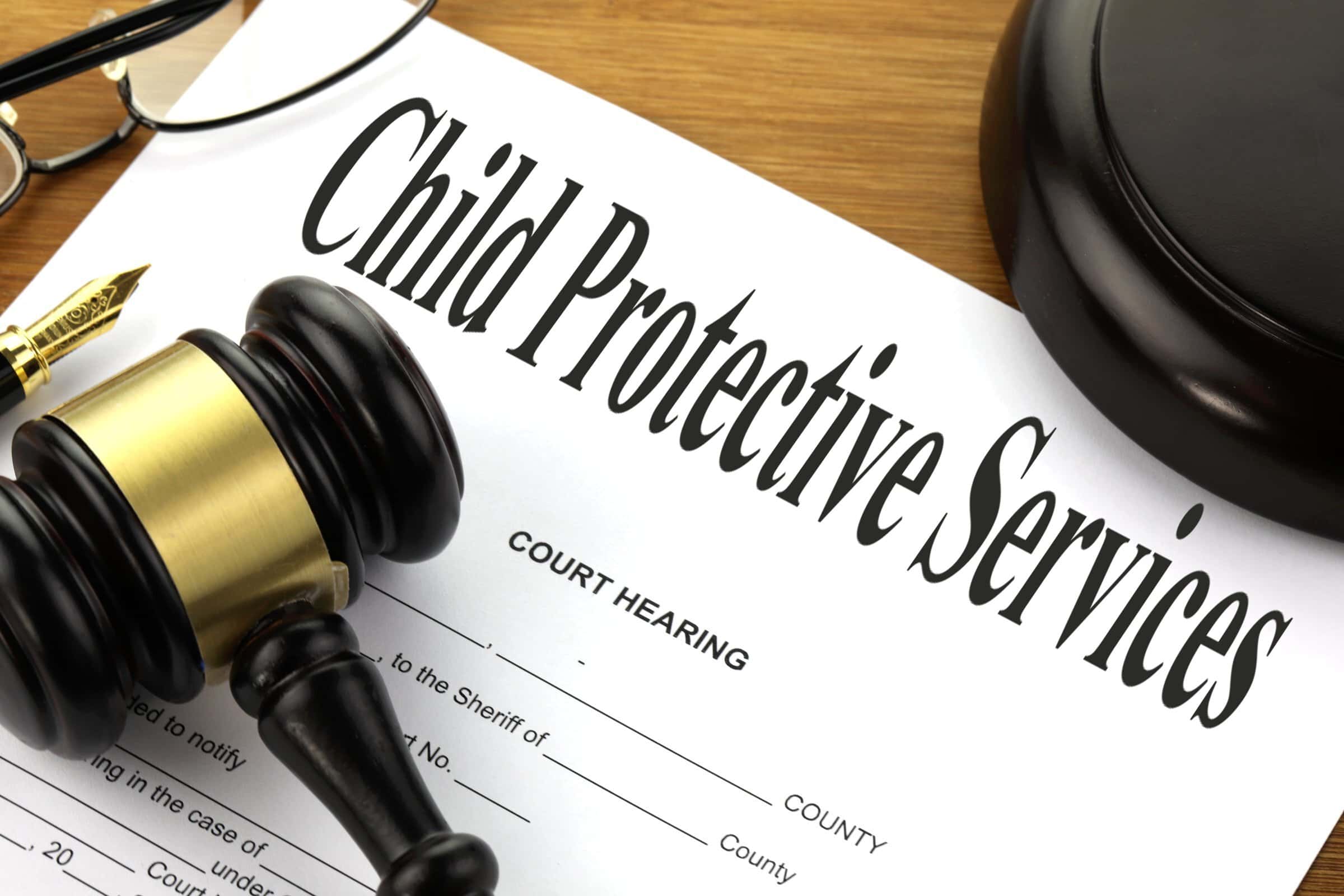
A knock on the door, the arrival of Child Protective Services (CPS), and the sudden, terrifying upheaval of your family life. For many parents, this scenario is a stark reality, filled with fear, uncertainty, and the potential loss of their children.
The emotional toll is immense, and the legal complexities can feel overwhelming. The stakes are incredibly high: the potential for family separation, the strain on relationships, and the arduous journey through a complex legal system. The sheer scale of the problem is sobering; More than 550,000 children are known to U.S. authorities to be abused.
Let’s talk about the CPS investigations, potential outcomes, and most importantly, how to find an experienced CPS defense attorney for legal assistance against alleged abuse or neglect.
Understanding Child Protective Services (CPS): More Than Just Taking Kids
Child Protective Services (CPS), or a similarly named agency in your area, is a government agency with a vital, albeit often misunderstood, role. However, the job isn’t just to snatch children from homes; it’s to ensure the safety and well-being of children within their jurisdiction.
They investigate reports of suspected abuse or neglect – be it physical harm, emotional trauma, sexual abuse, or neglect like inadequate food, shelter, or medical care.
They look into the parties involved, ensuring both of them are checked for false allegations, financial situation, and other legal matters involving CPS issues and long-term child welfare.
A Different Perception
Think of them as the safety net for children, aiming to keep families together whenever possible while prioritizing a child’s safety above all else. They work with families, providing resources and support to help improve situations and create safe homes.
However, when child welfare and immediate safety is at serious risk, CPS may need to act decisively, which might involve temporarily or permanently removing a child from their home.
For this task, they might even run background checks and create safety plans for the child’s safety and best interest.
When Does CPS Get Involved? Understanding the Triggers of Child Protective Services
CPS investigations are triggered by reports and not just claims over custody. Most cases can come from anywhere: teachers noticing bruises, doctors concerned about injuries, neighbors witnessing concerning behavior, family members voicing worries, or even anonymous tips.
Every report, regardless of its validity, must be investigated. This means that even if you believe someone has falsely accused you, CPS is obligated to investigate. This doesn’t mean you’re guilty; it simply means the system needs to ensure the child’s safety.
While cooperating fully is usually advisable (it shows you have nothing to hide), remember that you are not required to answer questions without a court order. However, if the case progresses to court, having a lawyer is crucial.
Your Rights: Knowing Your Ground in a CPS Investigation
Facing a CPS investigation is incredibly stressful, but remember: you have rights. These rights are vital to protecting yourself and your family. You have the right to know the specific allegations against you, the right to legal representation (which is highly recommended), and the right to a fair hearing if the case goes to court.
You also have the right to review the information CPS has gathered about your case and to challenge anything you believe is inaccurate or misleading.
Staying calm, understanding your rights, and documenting everything is essential for navigating this challenging process effectively.
Why You Need a Lawyer: More Than Just Court Representation
A lawyer specializing in CPS cases is not just for court appearances; they are your lifeline throughout the entire process. They’re your guide, your advocate, and your protector. They can advise you on how to cooperate with CPS while safeguarding your rights, help you gather evidence to support your case, and represent you in any court hearings.
More importantly, they can help you understand the potential outcomes, develop a strategy, and lessen the emotional burden of a CPS investigation. The emotional toll is immense; a good lawyer can help you navigate the legal complexities and reduce the overwhelming stress.
The CPS Investigation Process: What to Expect
A CPS investigation usually begins with a phone call from a caseworker within a few days of a report. This initial contact sets the stage for the investigation. While cooperation is generally advisable, remember you’re not obligated to answer questions without a court order.
The investigation will likely involve multiple interviews with parents, children, other family members, and potentially witnesses. Home visits are common, allowing the caseworker to observe the living environment and assess the child’s safety and well-being.
The caseworker carefully documents everything, creating a report that forms the basis of CPS’s decision. This report is reviewed by supervisors before any action is taken.
A CPS investigation report is a comprehensive document summarizing the agency’s findings. Its contents can vary depending on the specifics of the case, but generally includes the following:
Identifying Information:
Reporting Party: Details about the person or entity who made the initial report to CPS, including their contact information and relationship to the family. This section might also include the date and method of the report (e.g., phone call, online submission).
Allegations: A clear and concise statement of the specific allegations of abuse or neglect. This should include the nature of the alleged abuse (physical, emotional, sexual, neglect), the dates of the alleged incidents, and the alleged perpetrator(s).
Child(ren)’s Information: Names, ages, dates of birth, and addresses of all children involved in the case. This might also include information about the child’s school, doctor, and any other relevant services they receive.
Investigative Information:
Interviews: Summaries of all interviews conducted during the investigation. This includes interviews with the parents, children, other family members, witnesses, teachers, doctors, and any other relevant individuals. Each interview summary should note the date, time, location, and key statements made.
Home Visit Observations: A detailed description of the home environment, including cleanliness, safety, and the availability of necessities like food, clothing, and shelter. Observations about the interactions between family members are also included.
Collateral Contacts: Information gathered from collateral sources such as schools, medical providers, police departments, and other agencies. This could include medical records, school attendance records, police reports, and other relevant documentation.
Evidence: A description of any physical evidence collected during the investigation, such as photographs, medical records, or other documentation.
Risk Assessment: An assessment of the risk of harm to the child(ren), considering various factors like the severity of the alleged abuse, the frequency of the alleged incidents, and the parents’ ability to protect the child(ren).
Caseworker’s Assessment and Recommendations Against Child Neglect or Child Abuse:
Summary of Findings: A concise summary of the investigation’s key findings, including whether the allegations were substantiated, unsubstantiated, or inconclusive.
Safety Plan: If abuse or neglect is substantiated, a detailed safety plan outlining steps to ensure the child’s safety. This might involve removing the child from the home, providing in-home services, or other interventions.
Recommendations: Recommendations regarding the future course of action, such as continued monitoring, family therapy, parenting classes, or other services.
Legal Considerations:
Court Involvement: If the case proceeds to court, the report might include information about any court orders or legal proceedings.

Factors CPS Considers: A Holistic Assessment
CPS caseworkers don’t just focus on a single incident; they consider a multitude of factors. They assess the child’s physical and emotional well-being, the safety of the home environment, the parents’ ability to provide adequate care, and the presence of any risk factors like substance abuse or domestic violence.
Medical records, school records, police reports—all of this information might be reviewed. It’s a holistic evaluation, aiming to identify risks and develop plans to mitigate them. In this process, the following pointers may show up:
1. The Child’s Well-being:
Physical Health: This includes assessing the child’s overall health, any injuries, signs of malnutrition, or lack of proper medical care. Medical records play a crucial role here.
Emotional Well-being: Caseworkers look for signs of emotional distress, such as anxiety, depression, behavioral problems, developmental delays, or trauma. They might observe interactions between the child and their parents or caregivers to gauge the emotional climate within the family.
Educational Progress: A child’s performance at school, attendance, and any behavioral issues at school can indicate potential problems at home. School records are often reviewed.
Social Development: CPS considers the child’s social interactions, friendships, and overall social adjustment. Difficulties in these areas can be a red flag.
2. The Home Environment:
Safety: This is paramount. Caseworkers assess the home’s physical safety, looking for hazards, cleanliness, and overall suitability for raising children. This includes checking for things like working smoke detectors, secure windows and doors, and the presence of dangerous items.
Stability: A stable home environment is crucial for a child’s well-being. Factors like frequent moves, unstable housing, or chaotic living conditions are considered.
Resources: The availability of essential resources like food, clothing, shelter, and healthcare is carefully assessed. Lack of these necessities can be a sign of neglect.
3. Parental Capacity:
Parenting Skills: Caseworkers evaluate the parents’ parenting skills, their ability to meet the child’s needs, and their capacity to provide a nurturing and supportive environment. This might involve observing parent-child interactions or interviewing the parents about their parenting practices.
- Mental Health: The parents’ mental health is a crucial factor. Mental health issues such as depression, anxiety, or substance abuse can significantly impact their ability to care for their children.
Physical Health: A parent’s physical health can also affect their capacity to provide adequate food and care. Illness or disability might limit their ability to meet the child’s needs.
Substance Abuse: Substance abuse is a major risk factor. The presence of substance abuse in the home can create an unsafe and unstable environment for children.
Domestic Violence: Domestic violence is another significant risk factor. A violent home environment is extremely harmful to children.
Cooperation with CPS: The parents’ willingness to cooperate with the investigation and engage in services to address any identified issues is considered.
4. Risk Factors:
History of Abuse or Neglect: A history of abuse or neglect within the family is a major red flag.
Criminal History: The parents’ criminal history, particularly involving violence or child endangerment, is taken into account.
Social Isolation: Families who are socially isolated and lack support networks are at greater risk.
Exposure to Trauma: Children exposed to trauma, such as witnessing domestic violence or experiencing significant loss, are more vulnerable.
Potential Outcomes: Understanding the Possibilities
The outcome of a CPS investigation varies greatly. Sometimes, allegations are dismissed due to lack of evidence. Other times, it might lead to temporary custody arrangements, placing the child with a relative or in foster care while issues are addressed.
Families looking into family services might be required by CPS attorneys to participate in services like counseling or parenting classes. In the most serious cases, parental rights might be terminated by CPS caseworker, leading to adoption or long-term foster care. A lawyer can help you understand the likely outcomes based on your situation.
1. Termination of Parental Rights: A Last Resort
Termination of parental rights is a severe and final step. It’s usually reserved for situations where reunification is deemed unsafe or impossible due to severe and persistent abuse or neglect. It’s a complex legal process with significant consequences for both parents and children.
2. Appealing a CPS Decision: Fighting for Your Family
If you disagree with a CPS decision, you have the right to appeal. This is a complex legal process, and having a lawyer is crucial. They will guide you through the procedures, help gather evidence, prepare for hearings, and represent you in court.
Finding the Right Lawyer: Your Advocate in the System
Understanding the CPS system requires expert legal guidance. You need a family law attorney specializing in CPS cases—someone who understands the intricacies of the system, your rights, and how to effectively advocate for your family.
Remember, you’re not alone. Many resources are available to provide support and guidance during this difficult time. Legal aid organizations, support groups, and advocacy groups can offer invaluable assistance. Don’t hesitate to seek help; it’s a sign of strength, not weakness.
If you’re seeking someone to help you, our experienced CPS defense attorney at Bourassa Law Group and experienced personal injury lawyer can help you find the best solution for your situation.




